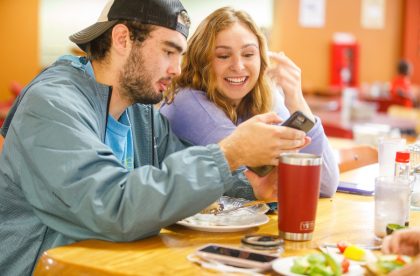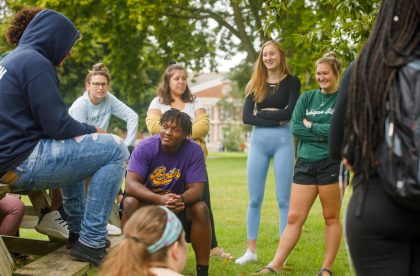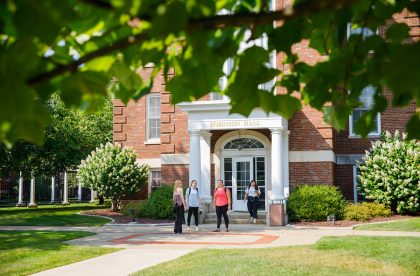Student Life
Pursue your Purpose. Build your Community.
At Albion, you’ll have a world of opportunity within a close-knit campus. Discover your niche among our more than 100 clubs and organizations. Build meaningful friendships in your residence hall or in a fraternity or sorority. Be one of the team through varsity, intramural or club sports. This is your chance to explore your passions, forge bonds and challenge your own expectations.
Housing & Dining

Find your home away from home on campus. First-year students live in traditional residence halls, where you’ll share common areas and the experience of starting a new path together. Grab a bite at Baldwin Hall, go on a coffee run at Read Between the Lines or make a family meal for your new friends in your residence hall.
Clubs & Organizations

Want to be part of a medical brigade? Looking for the sorority or fraternity that is right for you? Interested in learning equestrian arts? From campus activism to canoeing, you’ll find a way to get involved and learn something new.
Health & Wellness

You belong at Albion, and your physical, mental and emotional well-being is our priority. We offer holistic health and wellness resources to support student success, including 24/7 virtual health and counseling support. Need to get endorphins going? Head to the Dow Recreation and Wellness Center for weights, cardio and group sports.
Spiritual Life

Celebrate your spirituality and share your values with others through the Office of Campus Life. We recognize spiritual wellness as an important aspect of student well-being and offer interfaith programming and mentorship for students of all faiths and backgrounds.
Show Your Albion Pride!
From going through Matriculation as a first-year to celebrating your success at Commencement, and everything in between, our annual traditions are an opportunity to celebrate our community and make lasting memories.
A Space for You. A Space for All.
You belong at Albion, and Albion belongs to you. We strongly believe that. That is why we strive every day to make Albion a place where you can feel safe to express yourself, explore your beliefs and expand your view of the world.
Safety and Security
Find out how we’re promoting and providing a safe environment, as well as information and resources in case of an emergency.
Accessibility, Inclusion and Student Support
At Albion, we commit to you. Whether through tutoring, accommodations or a 15-minute fix, we are here to support your success.